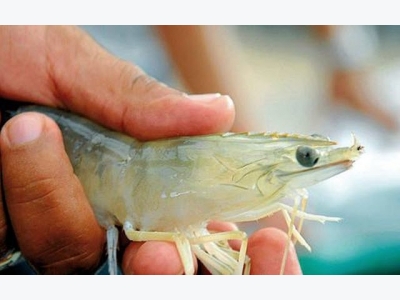Ecuador to spearhead global shrimp standards initiative

An effort is under way to upgrade global shrimp production standards. Photo: CNA
The project is under development with backing of NGOs and industry experts.
Key players in the Ecuadorian shrimp sector are working on the formation of a new global shrimp leadership program aimed at expanding the country’s sustainable farming standards to farms around the world.
A draft of the program’s guidelines is currently being finalized, after months of work with consultant Avrim Lazar, who was closely involved in the creation of the Global Salmon Initiative (GSI). The program is expected to launch during the 2018 Boston seafood show.
Jose Antonio Camposano, executive president of the Camara Nacional de Acuacultura (CNA), which is spearheading the project, hinted at its development at September's AquaExpo 2017 in Guayaquil, Ecuador.
“We have the opportunity to imagine a new phase of aquaculture – one more efficient, more transparent, more sustainable, and one where we can lead as an example at a world level,” Camposano said of Ecuador’s farming practices.
"We therefore have a choice: we can compete on price and allow standards to fall, or we can choose to emphasize quality and transparency and work towards higher production standards.”
Shrimp industry sources told IntraFish the initiative is still in development, but those involved are keen to create a platform to set voluntary standards producers around the world can aim to achieve.
Farmers joining the initiative will be required to meet standards of an aquaculture certification body, and to show firm commitment to antibiotic-free production, sources said.
In addition, the program will include water quality assessments to ensure that in open-farming systems producers are returning clean water to the environment.
Although Ecuador is a low-stock-density-driven producer, the initiative will not include fixed stock densities as a requirement, but will rather concentrate on the carrying capacity of the ecosystem of the farming sites to ensure minimal biological risks.
Camposano said demand is increasing, “which is good for us all, but there is a risk that social and environmental issues in some regions will only get worse, and that will impact the industry as a whole."
“Now is the time for us to demonstrate our commitment to excellence and transparency, and lead the way.”
Related news
Tools

Phối trộn thức ăn chăn nuôi

Pha dung dịch thủy canh

Định mức cho tôm ăn

Phối trộn phân bón NPK

Xác định tỷ lệ tôm sống

Chuyển đổi đơn vị phân bón

Xác định công suất sục khí

Chuyển đổi đơn vị tôm

Tính diện tích nhà kính

Tính thể tích ao



 Troubling times for tilapia in the US
Troubling times for tilapia in the US  Vietnam seafood exporters: EU yellow card an 'opportunity…
Vietnam seafood exporters: EU yellow card an 'opportunity…